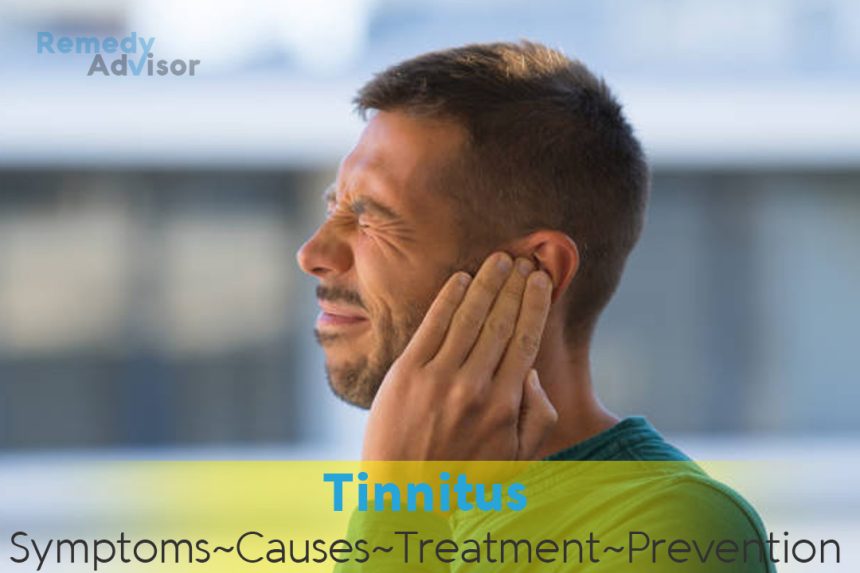What is it
Most of us hear faint ringing sounds occasionally when there’s no external noise. Usually such sounds last a few minutes or, at most, several hours. But if ringing or other noises in your head are persistent, you have tinnitus. Though the term is from a Latin word meaning to ring like a bell, people with tinnitus may actually hear many sounds, from buzzing, tinkling, and humming to popping and clanging.
Researchers estimate that about 36 million Americans have occasional or constant tinnitus. About 10 million have such severe symptoms that they have sought medical help. The remainder experience a low level of noise usually in both ears but sometimes in just one which can still be a nuisance, interfering with work, social life, and sleep. The onset of tinnitus doesn’t signify that you will become seriously or permanently deaf, but tinnitus is often associated with some hearing loss though it does not cause it. About 80 percent of Americans who have some hearing loss also experience tinnitus.
Tinnitus has been described by one expert as someone “listening to old age sneaking up on him,” since the great majority of tinnitus sufferers are middle-aged or older. It usually comes on slowly, with intermittent episodes that may become chronic with age. But some young people also experience tinnitus. There is a less communal system of tinnitus objective tinnitus in which noises you hear may be caught by doctor hearing with stethoscope. Usually these sounds are produced by either movement of the jaw (the temporomandibular joint) or the flow of blood in major blood vessels of the head and neck.
Symptoms
- Ringing, buzzing, humming, or other tenacious or sporadic noises in one or both ears.
- Interference with hearing.
- Possible sleep disturbance.
What causes it
While it’s true that the sounds of tinnitus are all “in your head,” they are nevertheless real. The physiological or neurological cause of such subjective sounds isn’t always known, but they are a symptom of something that has gone awry in the auditory system. For example, infections of the middle ear or a perforated eardrum can induce tinnitus, as can a buildup of wax or dirt in the outer ear. One of the most common causes is exposure to loud noises such as gunshots, jet engines, jackhammers, chain saws, rock music, or industrial machinery. Tinnitus has also been linked to tumors of certain cranial nerves, head injuries, and excessive use of alcohol and aspirin.
More often then not, the specific cause of tinnitus cannot be determined. But whatever factor is responsible, there is usually damage to the microscopic hair cells in innermost ear, mostly those liable for noticing high-frequency noises.
What if you do nothing
Tinnitus rarely goes away, and it often intensifies with age. But you can take steps to learn to live with it.
Home remedies
When conductive hearing loss, such as that caused by wax in the ear canal, is involved, treatment is almost always successful. When the cause is unknown which is generally the case the chances of medically correcting tinnitus are quite small. No standard drug or medical procedure relieves tinnitus, but the following steps have proved effective.
Drown out the noise
Overpowering the sounds of tinnitus with less troublesome sounds is possibly the most capable method of coping with the situation. For people with mild tinnitus, background sound from a radio or television may do the trick. White-noise machines that provide a low, continuous noise can offer the same effect.
For the many tinnitus sufferers with hearing loss, the ambient sounds picked up by a hearing aid can reduce or even eliminate tinnitus of medium or low pitch. A newer device that has been quite successful is the tinnitus masker, that is worn like a hearing aid and produces a stable, uninteresting noise just like wind in trees or the hum of an electric fan a sound that quickly becomes familiar and can be easily ignored. One benefit of such a device is psychological: one of the most disturbing aspects of tinnitus is your lack of control over the noise, and a masker gives you back that sense of control.
Masking devices must be approved by the Food and Drug Administration (FDA) because of the potential risk they pose if they are too loud. They are sometimes combined with hearing aids.
One expert estimates that almost 60 percent of patients with severe tinnitus can be helped by using a hearing aid, masking device, or combination device.
Cut back on or avoid caffeine, alcohol, and nicotine
These substances can all make tinnitus worse by constricting blood vessels.
Reduce stress
Since stressful situations often seem to aggravate tinnitus and tinnitus in turn is stressful almost any type of relaxation technique may help you cope. Some tinnitus sufferers have reported that biofeedback helped them temporarily. Claims have also been made for hypnosis and acupuncture.
Join a self-help group
There is a national association and there are local groups throughout the United States that can offer support along with information about new techniques and treatments.
Prevention
Avoid loud noise
This is one of the only preventive steps you can take. Use earplugs when necessary, and make sure that your work environment meets the federal guidelines for noise limits, which employers must follow.







